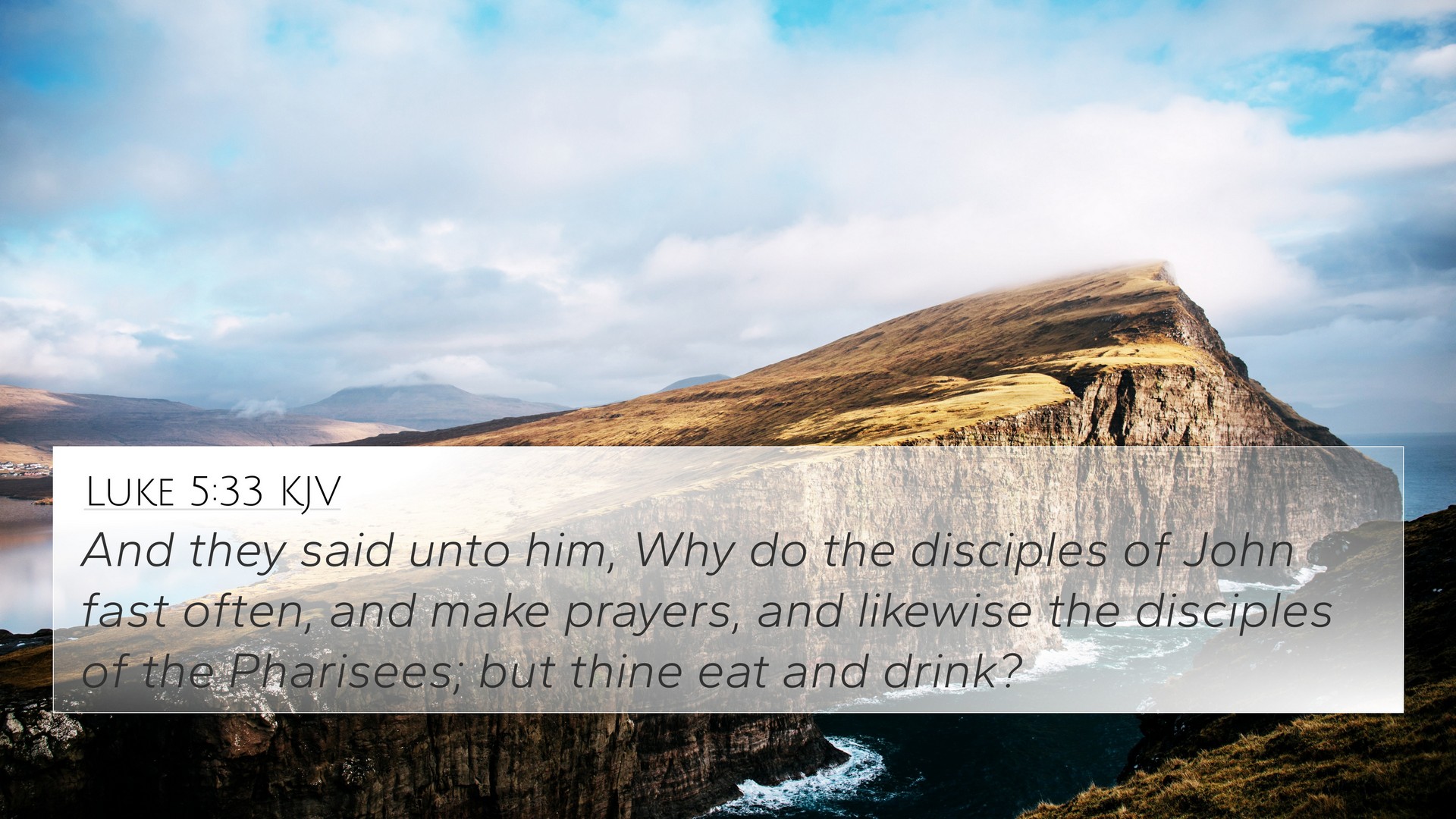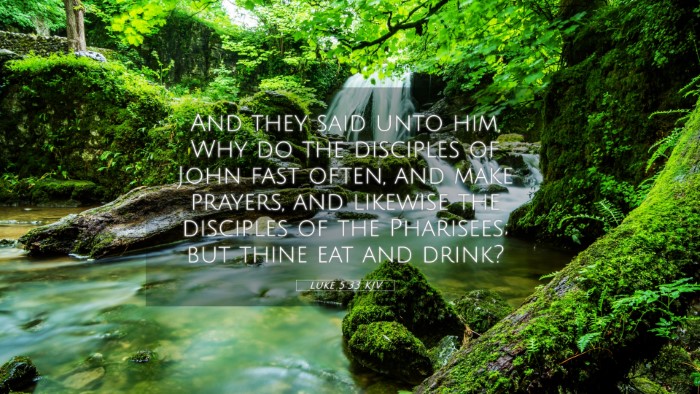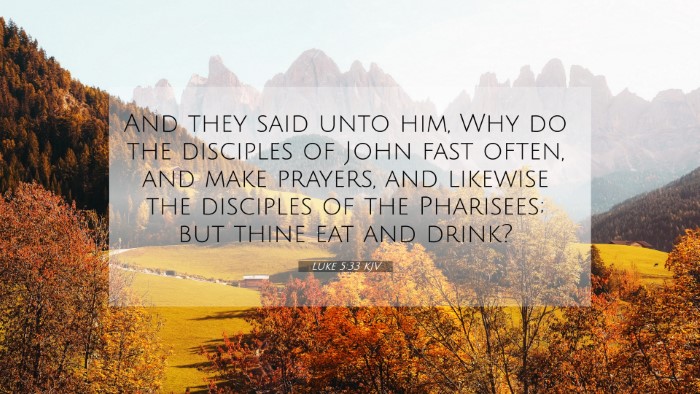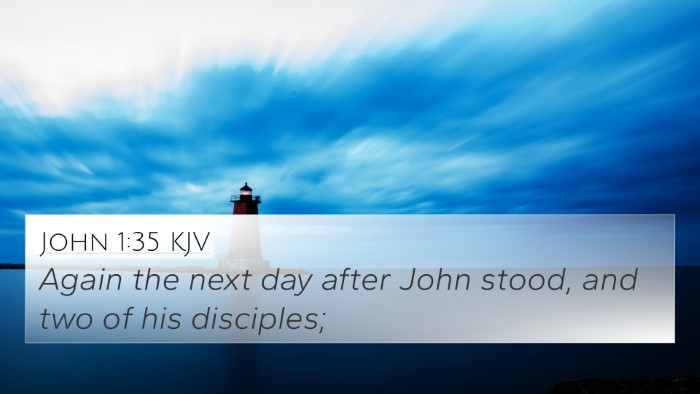This section features a detailed cross-reference designed to enrich your understanding of the Scriptures.
Below, you will find carefully selected verses that echo the themes and teachings related to Luke 5:33 KJV. Click on any image to explore detailed analyses of related Bible verses and uncover deeper theological insights.
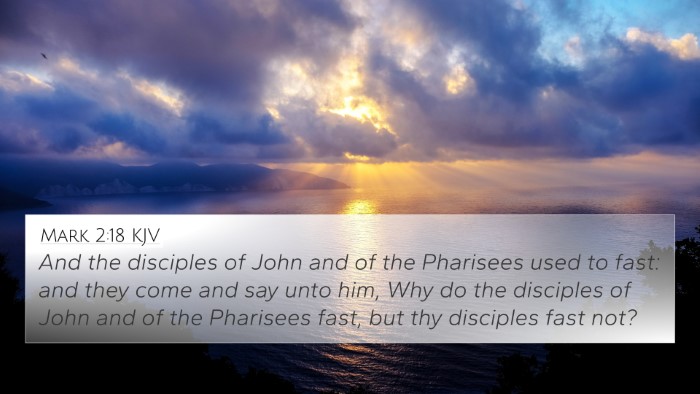 Mark 2:18 (KJV) »
Mark 2:18 (KJV) »
And the disciples of John and of the Pharisees used to fast: and they come and say unto him, Why do the disciples of John and of the Pharisees fast, but thy disciples fast not?
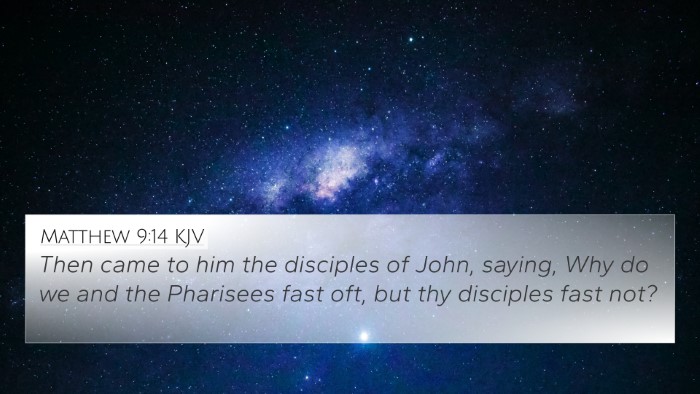 Matthew 9:14 (KJV) »
Matthew 9:14 (KJV) »
Then came to him the disciples of John, saying, Why do we and the Pharisees fast oft, but thy disciples fast not?
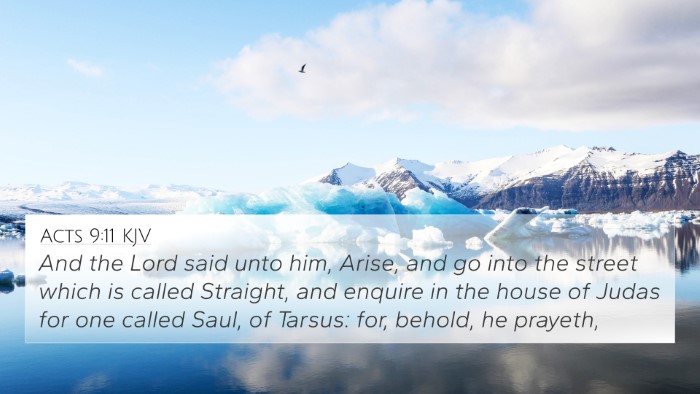 Acts 9:11 (KJV) »
Acts 9:11 (KJV) »
And the Lord said unto him, Arise, and go into the street which is called Straight, and enquire in the house of Judas for one called Saul, of Tarsus: for, behold, he prayeth,
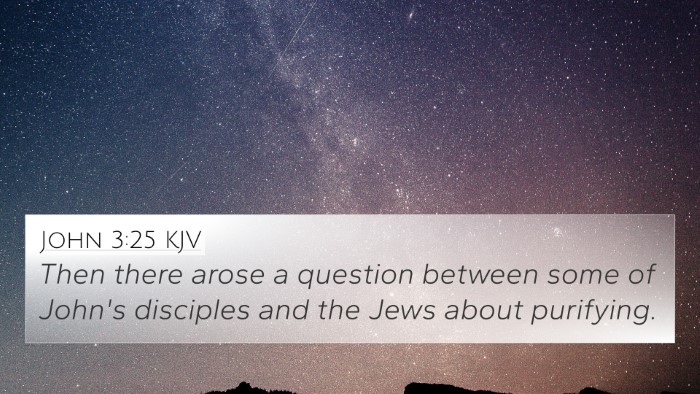 John 3:25 (KJV) »
John 3:25 (KJV) »
Then there arose a question between some of John's disciples and the Jews about purifying.
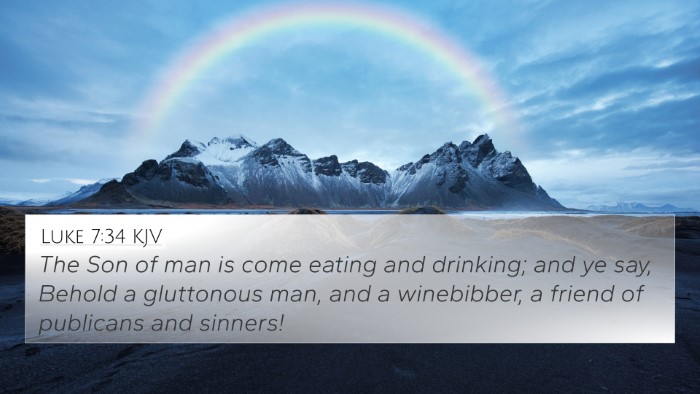 Luke 7:34 (KJV) »
Luke 7:34 (KJV) »
The Son of man is come eating and drinking; and ye say, Behold a gluttonous man, and a winebibber, a friend of publicans and sinners!
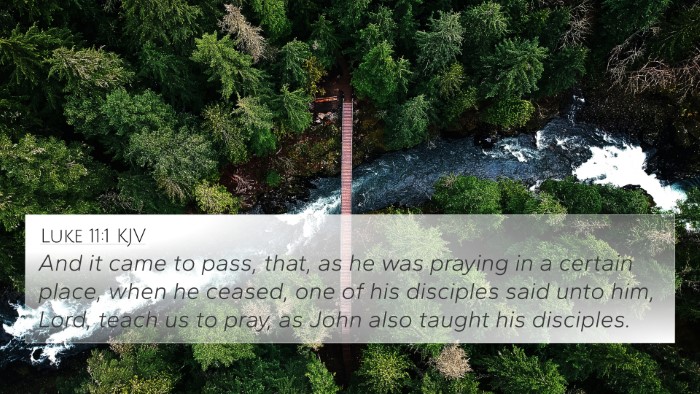 Luke 11:1 (KJV) »
Luke 11:1 (KJV) »
And it came to pass, that, as he was praying in a certain place, when he ceased, one of his disciples said unto him, Lord, teach us to pray, as John also taught his disciples.
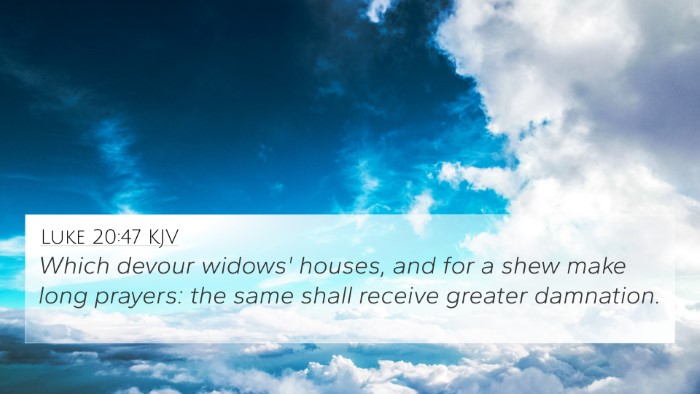 Luke 20:47 (KJV) »
Luke 20:47 (KJV) »
Which devour widows' houses, and for a shew make long prayers: the same shall receive greater damnation.
 Proverbs 28:9 (KJV) »
Proverbs 28:9 (KJV) »
He that turneth away his ear from hearing the law, even his prayer shall be abomination.
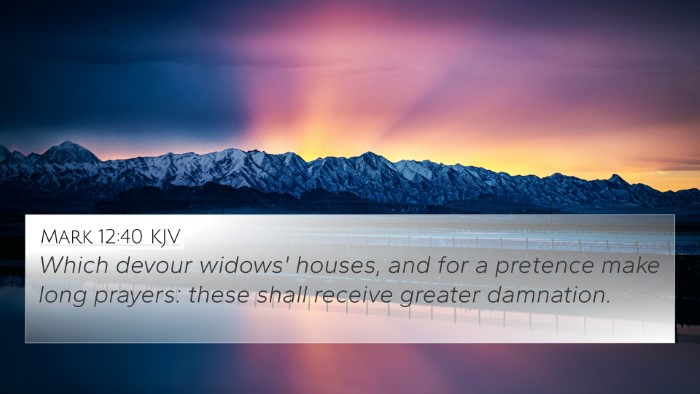 Mark 12:40 (KJV) »
Mark 12:40 (KJV) »
Which devour widows' houses, and for a pretence make long prayers: these shall receive greater damnation.
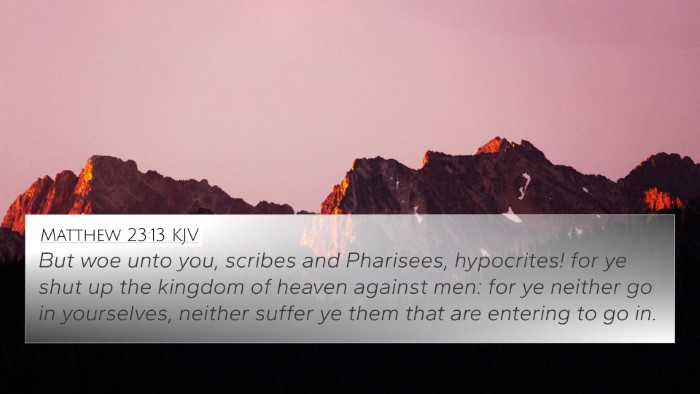 Matthew 23:13 (KJV) »
Matthew 23:13 (KJV) »
But woe unto you, scribes and Pharisees, hypocrites! for ye shut up the kingdom of heaven against men: for ye neither go in yourselves, neither suffer ye them that are entering to go in.
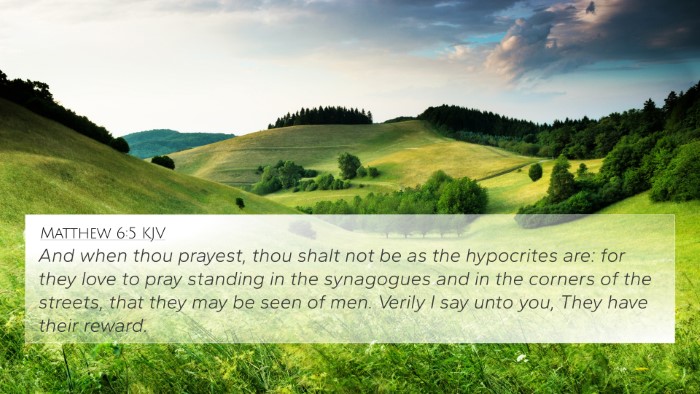 Matthew 6:5 (KJV) »
Matthew 6:5 (KJV) »
And when thou prayest, thou shalt not be as the hypocrites are: for they love to pray standing in the synagogues and in the corners of the streets, that they may be seen of men. Verily I say unto you, They have their reward.
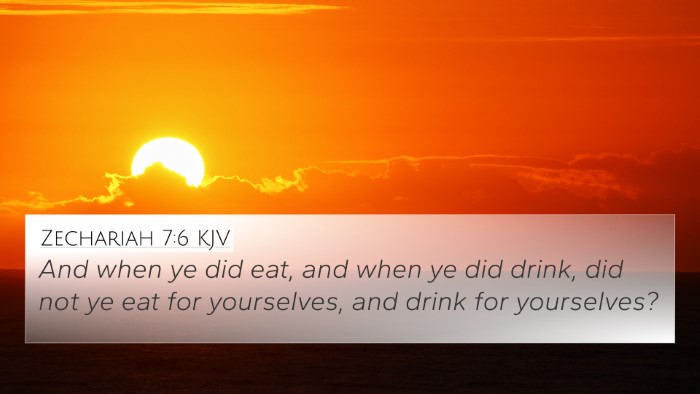 Zechariah 7:6 (KJV) »
Zechariah 7:6 (KJV) »
And when ye did eat, and when ye did drink, did not ye eat for yourselves, and drink for yourselves?
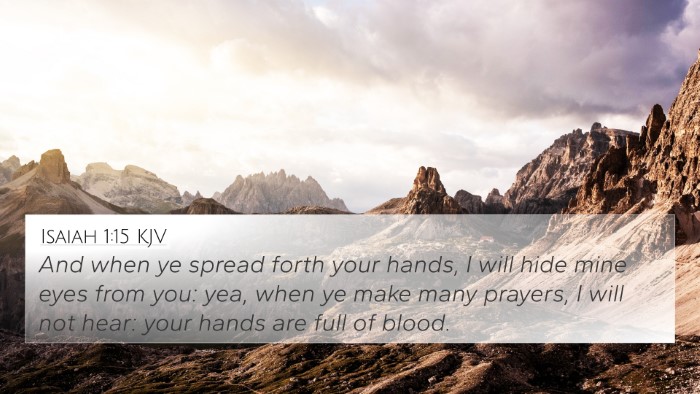 Isaiah 1:15 (KJV) »
Isaiah 1:15 (KJV) »
And when ye spread forth your hands, I will hide mine eyes from you: yea, when ye make many prayers, I will not hear: your hands are full of blood.
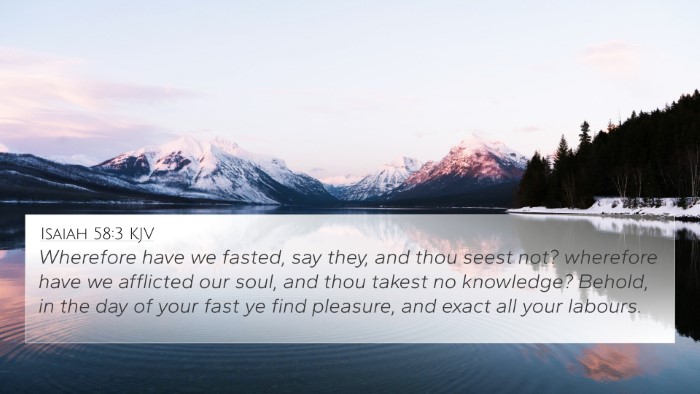 Isaiah 58:3 (KJV) »
Isaiah 58:3 (KJV) »
Wherefore have we fasted, say they, and thou seest not? wherefore have we afflicted our soul, and thou takest no knowledge? Behold, in the day of your fast ye find pleasure, and exact all your labours.
 Romans 10:2 (KJV) »
Romans 10:2 (KJV) »
For I bear them record that they have a zeal of God, but not according to knowledge.
